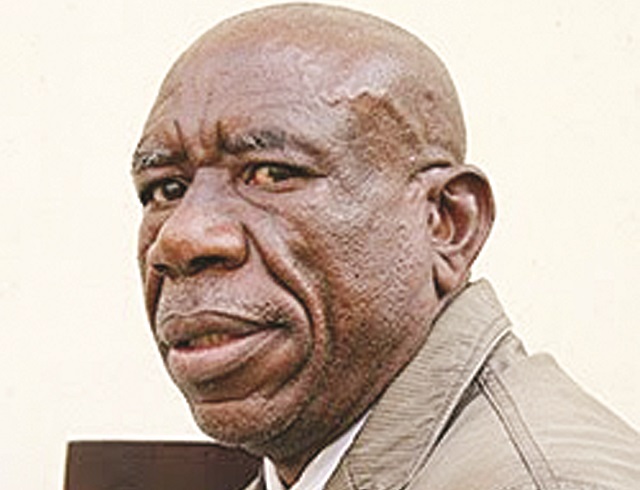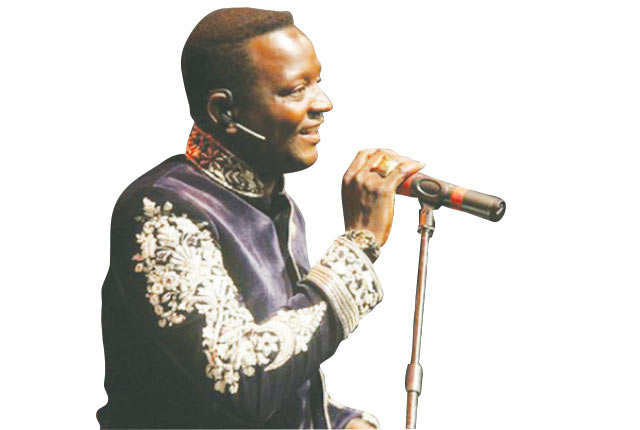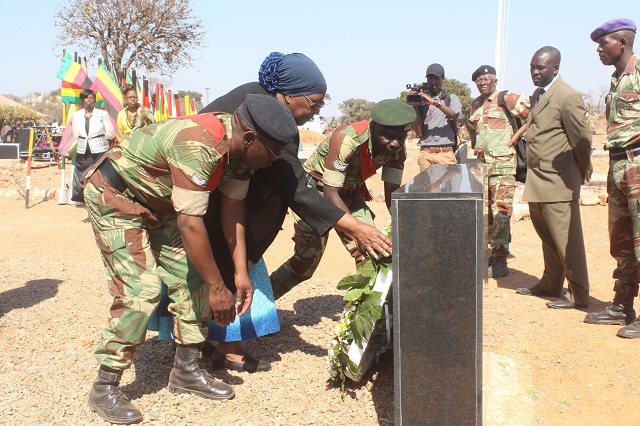Humble, gallant fighter

Walter Mswazie, Masvingo Correspondent
Retired Brigadier General Callisto Gwanetsa is a humble man. His simplicity could be mistaken for an ordinary villager.
Despite having occupied a senior rank in the army and successfully ducked the enemy’s missiles during the country’s protracted war of liberation, Retired Brig Gen Gwanetsa remains down to earth.
His humble nature can be attributed to the discipline that was inculcated in him during the five years of fierce fighting he spent in the bush and 26 years of leading soldiers in the Zimbabwe National Army’s artillery section at 2 Brigade Cranborne in Harare.
Rtd Brig Gen Cde Gwanetsa is no mean citizen but a renowned surviving hero who fought a bitter war of liberation. He was a strategist during the country’s liberation struggle and also embarked on peace keeping duties in Somalia, Liberia, Mozambique and the Democratic Republic of Congo after Zimbabwe had attained its independence.
He trained a number of soldiers and was a military diplomat at the highest level in a number of international peace keeping duties under the auspices of the United Nations.
At the time of his retirement in February 2007 he had attained the rank of Brigadier General, commanding 2 Brigade Artillery at Cranborne in Harare.
During his tenure in the ZNA Mashonaland East, Mashonaland West, Mashonaland Central and Harare provinces fell under his command.
Rtd Brig Gen Gwanetsa joined the struggle in 1975 and he believes his desire to go to war was derived from the days he was a student activist at Lundi High School. After school he briefly became a temporary teacher before joining other brave sons of Zimbabwe in the trenches.
He taught at a school in his home area of Chiredzi South. At that time, Rtd Brig Gen Gwanetsa took advantage of his position as a teacher to coordinate meetings with Zanla forces who were already fighting the Ian Smith regime with traditional leaders comprising headmen Masivamele, Mupapa, Gezani and Chilonga.
He said a freedom fighter by the name Makasha was responsible in leading the first guerilla meeting to be held in the area. The meeting could have motivated him to leave his temporary teaching job to cross to Mozambique and join Zanla forces at Chiqualaquala where he received his military training.
After the training, he was deployed to Gaza province back home where after a few months he was seconded to the position of political commissar and started preparing recruits for induction for the battle.
He was seconded for further training at Nachinguea in Tanzania where he led a group of 5 000 soldiers.
Due to his astute military leadership qualities, he assumed the position of commander at Nachinguea after the late Gen Amoth Chimombe and Mark Dube. From Nachinguea, he was sent to Mgagao for further training after which he came back to the then Rhodesia to get latest information for use during training.
“I returned, briefly to get an appreciation of what was on the ground as I had to train soldiers basing on the currency of the war. I was supposed to have full information on the state of affairs back home pertaining the protracted struggle. I then went back to Mgagao after gathering necessary data,” said Rtd Gen Brig Gwanetsa.
He and other cadres did not return home immediately after independence and had to follow after one year as they feared that the British who were fighting them could decide to strike again. In 1981 he was attested into the army where he rose from the rank of a captain to the rank of Brig Gen. He became the first black adjutant of the artillery regiment at 2 Brigade in Harare.
“We remained in Tanzania as a contingency measure as there were fears that our enemy may decide to reignite the war. Our leaders wanted to be sure that the war was over and it also took us some time to believe that the settlers had genuinely surrendered,” he said.
Rtd Brig Gen Gwanetsa then took part in a number of operations winning medals in the process. He was part of the peace operations in Mozambique, Angola, Somalia and the DRC.
He also served for three years at the United Nations (UN) head office and as a military advisor to Boutros Boutros Ghali through Kofi Annan, the then UN secretary before returning home in 1994.
He said the most fearsome and protracted struggle during the peace keeping mission was in Mozambique and the DRC where he together with other Zimbabwean soldiers scored first in bringing peace to those countries.
He, however, said his nightmarish experience came when he was captured by the rebels during UN peace keeping mission in Somalia.
“I was captured for five hours by the rebels who did not want to compromise and those five hours were like five years because of the torture I went through.
I had entered the Somali airport without being aware that the rebels had captured it during the night. I drove in but suddenly I saw guns pointing at me, it was hell and I will never forget the experience.
“They were pointing at my head with the barrels keeping contact with my head. The fortunate part is that I was complying with whatever order they gave me otherwise I could be history by now.”
Turning to Heroes and Defence Forces Day commemorations, Rtd Brig Gen Gwanetsa said the two days have a great meaning to the people of Zimbabwe as they are a reminder that the country was not won on a silver platter but there are men and women who shed blood for its liberation.
He said every Zimbabwean should partake in the commemorations because it is through the fallen and surviving heroes that we enjoy the freedom presently prevailing in the country.
“Defence Forces’ Day is a celebration of unity between forces that we had at independence. We had to come together to be one force because we had won independence in 1980.”
As part of celebrating Defence Community Week, the army donated books and commissioned a classroom in Gutu and a clinic at Chasiyatende Clinic in Chivi where they also offered free medication to villagers and conducted cataract operations on elderly people last week.










Comments